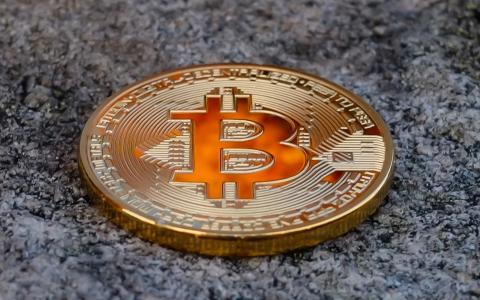
Donald Trump’s emergence as the first “crypto president” is generating significant buzz among wealth advisors and registered investment advisors (RIAs), signaling what many believe could be a transformative era for cryptocurrencies.
One of the most talked-about initiatives is Trump’s July pledge to establish a national bitcoin reserve. This announcement has fueled investor enthusiasm, driving bitcoin to historic highs with momentum that shows little sign of slowing.
“This development lends legitimacy to cryptocurrency and bitcoin as a financial asset,” says Scott Mason, senior policy advisor at Holland & Knight, who specializes in blockchain and crypto.
A National Bitcoin Reserve: What It Means
The concept of a national bitcoin reserve gained further traction when Wyoming Senator Cynthia Lummis introduced the BITCOIN Act, outlining a detailed framework. Her proposal calls for the U.S. to accumulate 1 million bitcoins over 20 years, aiming to hold roughly 5% of the total supply.
“Bitcoin’s appreciation since its inception positions it as a strategic asset. A national reserve could strengthen the U.S. dollar’s status as the world’s reserve currency and significantly reduce national debt,” Lummis stated during a press briefing.
This strategy resonates with crypto advocates. Bitcoin’s finite supply, they argue, suggests a higher future valuation, making an investment today a potential hedge against escalating national debt and inflationary pressures.
“This approach requires minimal financial outlay but could profoundly enhance the country’s financial stability,” writes crypto proponent Anthony Pompliano in a LinkedIn post. He even suggests the U.S. could print $250 billion to acquire bitcoin.
Skepticism Remains
Not all experts are convinced of bitcoin’s viability as a strategic reserve asset. Ananya Kumar, deputy director at the Atlantic Council’s GeoEconomics Center, questions bitcoin’s reliability as an inflation hedge. Unlike gold, she notes, bitcoin often mirrors stock market trends, making it a volatile choice for such a critical role.
“If the U.S. invests in an unpredictable asset like bitcoin, it risks unintended economic consequences,” Kumar told Business Insider. She also raised concerns about Senator Lummis’ proposal to liquidate Federal Reserve gold certificates at current market value to fund bitcoin purchases, warning that such a move could be inflationary and disrupt Federal Reserve operations.
Kumar highlights another potential hurdle: public opinion. With a majority of Americans still not owning bitcoin, garnering widespread support for a national reserve may prove challenging.
Political and Regulatory Hurdles
Investor optimism remains high despite these challenges. Betting markets like Kalshi estimate a 64% chance that a U.S. bitcoin reserve will be established by 2026. However, political realities may slow the process.
Crypto billionaire Michael Novogratz notes that while Republicans control the Senate, they lack the 60 seats needed to bypass legislative roadblocks. “Congressional support for this initiative isn’t strong right now,” he said in a Bloomberg TV interview, questioning whether a bitcoin reserve is even necessary.
There’s also speculation about whether the administration could bypass Congress and create the reserve through executive action. However, Mason argues that such a move would require safeguards beyond the scope of a presidential order.
“Who would control the balance? Who decides when to buy or sell?” Mason asked, emphasizing that collaboration between Congress, the Federal Reserve, and the Treasury will be essential—a process he predicts will take time.
Even within crypto-related legislation, a national bitcoin reserve may not be the top priority. Kumar and Mason expect other bills, such as those focused on regulatory clarity, to take precedence.
Impact on Bitcoin Prices
If implemented, a national bitcoin reserve could reshape the cryptocurrency market. Novogratz predicts it would spark a paradigm shift, propelling bitcoin to $500,000. His reasoning? Other nations would feel compelled to establish their own reserves to remain competitive.
This domino effect is why Matt Mena, crypto research strategist at 21Shares, believes bitcoin could soar to $1 million “almost overnight.” In an email to Business Insider, Mena explained that the U.S. creating a reserve would trigger a global race to accumulate bitcoin, driving its market cap well past gold’s.
However, Kumar is less convinced of such a direct correlation. She points out that while countries maintain strategic oil reserves to manage supply disruptions, bitcoin’s utility as a government-held asset remains debatable. Unlike oil, bitcoin’s role in national strategies is speculative and lacks a clear precedent.
What This Means for RIAs
For wealth advisors and RIAs, the prospect of a national bitcoin reserve presents both opportunities and challenges. On one hand, it could validate bitcoin as an asset class, encouraging clients to consider cryptocurrency as part of their portfolios. On the other, the inherent volatility of bitcoin underscores the importance of risk management.
As the conversation around a U.S. bitcoin reserve unfolds, advisors must stay informed about regulatory developments and market implications. Educating clients on the potential risks and rewards of cryptocurrency investments will be critical in navigating this evolving landscape.
The next few years could mark a pivotal moment for cryptocurrencies, with implications that extend far beyond the headlines. For RIAs, staying ahead of these trends will be essential in providing strategic guidance to clients seeking to capitalize on the opportunities of this emerging asset class.



